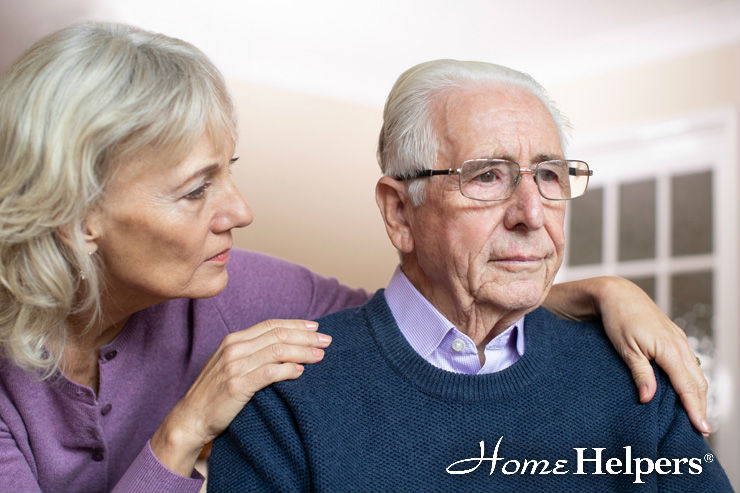Alzheimer’s Disease presents many challenges, not the least of which is something called sundowning—a period in the late day/early evening when agitation or irritability can set in for no apparent reason. Confusion tends to worsen as the sun goes down, hence the name. The real challenge for caregivers is that this time is often when they need a break from their duties the most—as the day is fading. To make matters even more challenging, the caregiver may notice that elderly people who are experiencing sundowning will become restless or not stay in bed during nighttime hours, meaning that the caregiver doesn’t get much sleep either. So, what causes it?
Possible Causes
We don’t know a lot about what causes sundowning. One theory is that a person’s “biological clock” can be affected by changes in the brain brought on by Alzheimer’s. This can wreak confusion on the cycle of waking and sleeping, causing the symptoms of sundowning.
Other possible causes of sundowning include:
- Being tired
- Being thirsty or hungry and not meeting those needs.
- Depression
- Pain
- Restlessness/Boredom
Coping with Sundowning
The time to look for sundowning symptoms is late in the day, as the light starts to fade. You may notice anxiety, pacing, yelling, wandering or general confusion. The best thing to do if possible is to try to identify what is causing the behavior, such as hunger or thirst. They may need to be calmly reassured that everything is okay, especially if there are upsetting events on TV or going on around them.
You can also try these tips:
- Reduce the number of people in the room, along with the activity.
- Try to distract the person with something they like to do or eat. A simple activity like folding towels can be just enough.
- Make the early evening a very calm time of day. You might play soothing music, receive a call from friends or family, or even read to the senior loved one. All of these things can be hugely effective.
- Close blinds and curtains to minimize shadows, which can be unnerving for people who suffer from sundowning. Turning on lights can also help.
Preventing Sundowning
Try to help the person prevent this condition by getting enough rest and food, drink, social activity. Make sure there is at least some time spent outdoors where vitamin D from the sun can be helpful. Not only will this reset the body clock of the person with Alzheimer’s, but it helps with mood.
Get a little exercise each day. This will keep them tired at the right times. If they need daytime rest or naps, work that into the schedule but don’t allow them to sleep too long late in the day. Get plenty of rest at night.
Things that can make sundowning worse:
- Do not serve caffeine during the day.
- Alcohol can cause confusion and agitation, so steer clear.
- Do not overload their day with too many activities.
If these tips have been tried and you are still struggling with managing the condition, you need to seek medical attention from the person’s doctor. There could be underlying causes that are exacerbating the condition and making things worse.
Keep in mind that the cause of the problem may be a combination of factors, such as a sleep disorder, pain or depression. Even some medications can create symptoms of sundowning. The doctor may prescribe medications to help with sleep, but usually only want to use them for short periods of time, as they can cause an increased risk of falling, dizziness or confusion.
If you have any questions or if you need help in caring for someone with sundowning, contact us.

